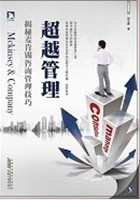Introducing Corporations
The concentration of income at the top is a key reason that the United States, for all its economic achievements, has more poverty and lower life expectancy than any other major advanced nation. Above all, the growing concentration of wealth has reshaped our political system.[1]
—PAUL KRUGMAN, “FOR RICHER,” New York Times Magazine
PEOPLE ALL OVER the United States share a sense of uneasiness, of loss of control over their jobs, lives, communities. Most of them do not connect this sense to the role of corporations in their lives. They have not realized just how purposeful and far-reaching the corporate takeover already is, or how much privatization is driving it.
But they feel the impact. Many of us feel the anxiety, frustration, anger, and outright fear that comes from being vulnerable to decisions made by people who do not know us or give a damn about us except as consumers or votes to be won using the same slick advertising they use to make us think we're nothing if we don't go out and buy what they're selling. We know we do not exist for these corporations as individuals, as communities. We do not exist for them as people who have lost our jobs and run out of unemployment, who have lost our pensions, our benefits, our unions that fought for rights and protections not just for their members, but for everyone. Corporate leaders and their political supporters talk about our problems, but it seems always to be their own power and profits they're really out for.
A Few Facts About Corporations
Here are some interesting facts about corporations that most folks don't know.
Corporations are treated legally as if they were individual human beings. The word corporation itself comes from the Latin word corpus, meaning body. In 1886, the United States Supreme Court ruled, in Santa Clara v. Southern Pacific Railroad, that corporations are considered to be “persons” covered by the U.S. Constitution—including the Bill of Rights.[2] So, for example, corporations are considered to have freedom of speech. This is interpreted to mean that corporations can say what they want in paid advertisements, and can make campaign contributions to people running for office. People say that money talks. In this case, they couldn't be more right. Corporations can't vote, but still they are empowered to participate in affecting the political process as if they were just one of us.
As legal “persons,” corporations can exercise a right to trial by jury in criminal cases, and are protected from unreasonable searches and double jeopardy—just like you and me, but, shall we say, more so. Among other things, they have a right to exist indefinitely while we, being mortal, really aren't eligible to share in such a right.
Corporations offer legal protection to their officers and directors. If they make decisions that result in human tragedy, environmental disaster, community destruction, the directors and officers are usually not personally liable (and, in any case, are covered by insurance). It's the corporation's fault, not theirs. So no matter what corporate officers and directors have done, no matter how much death and loss their decisions have caused others, no matter how many lives have been spoiled, their millions of dollars, their mansions, their second, third, and fourth homes, their yachts, their private planes have usually remained safe. Few indeed have been the corporate criminals who go to prison—or who, if they do go, emerge from prison genuinely broke. True, the Sarbanes-Oxley Act of 2002 included provisions for some possible fines and prison sentences, as well as protections for whistle-blowers, but less than three years later the Republican-dominated U.S. Congress was being heavily lobbied to revert to the good old days.
Corporations are legally required to manage for maximum profit. If the officers and directors of a corporation fail to do so, stockholders can sue them for damages. So even if they believe that the corporation they direct should act more humanely, compassionately, generously, even if they think there should be protection for workers, for communities, for the environment, corporate officers and directors are at risk if they act on those beliefs unless what they do is going to make money for the corporation.
Rather surprisingly (if one of the things you knew about Henry Ford's milk-of-human-kindness record was his active and truly nasty anti-Semitism), the founder of the Ford Motor Company tried to do right by his employees and customers. Ford reportedly said, “Sometimes I do not believe that we should make such awful profits on our cars.” He cut the price from over $900 to $440 (in 1916 dollars). Just as surprisingly, he paid the people who built Fords more than the going market rate at the time, and by more than just a token amount. In a famous court decision, Dodge v. Ford, Henry Ford was set straight. It was established that it was literally not his business to try to be fair to his customers and good to workers.[3]
The purpose of a corporation isn't to do good. The purpose of a corporation is to make money. This is not a secret, or an unfair oversimplification made only by radical anticorporate types. It is a legal, historical, theoretical, and even, in the view of some corpo-ratist theorists, a political and moral imperative.
For example, the influential free market economist Milton Friedman—whose early book Capitalism and Freedom is now in its fortieth anniversary edition—writes that the view that corporate officers have a social responsibility shows “a fundamental misconception of the character and nature of a free economy.” Why? Because “few trends could so thoroughly undermine the very foundations of our free society as the acceptance by corporate officials of a social responsibility other than to make as much money for their stockholders [he doesn't say ‘for themselves,’ we note] as possible.”[4]
This, says Friedman, “is a fundamentally subversive doctrine.” Subversive of what? “Our free society.” Note that for Friedman and the conservatives who revere him, “our free society” is one and the same as a capitalist system in which corporations have as their sole purpose “to make as much money as possible.”
These days, one of the easiest and fastest ways for corporations to fulfill their obligation and moral mission to make even more money is by privatizing public goods and services. It is rather hard to believe that this will elevate the moral standards by which we live individually, or those to which we want our government and the public sector to adhere.
Healthy families and communities work because people make commitments to each other and do their best to keep them. That's what makes a good partnership between two people, for example. It's mutual. It's a two-way street. When two people decide to live together, or to marry (or both), they in effect say to each other: “If I agree to care for you and help you, to put time and effort into this relationship, then I expect you to do the same for me.” People in a mutual relationship have the right to expect that their partner won't abandon them, won't just walk out on them. It doesn't always turn out that way, but part of the reason we cry at weddings as well as over breakups is because commitment is important to us. We care about it, it moves us.
Think how different that is from the attitude most corporations have toward the communities in which they're located and the people who work for them.
Evening hangs like smoke
On this mill town that I love
My thoughts they roll and tumble
Through the years
My old heart drifts through the haze
Back to Youngstown's better days
The mills have gone away
But we're still here
We're still here
We're still here
The mills have gone away
But we're still here
With our neighbors and our kin
Right here where we've always been
The mills have gone away
But we're still here
Looking down the street
To the days when I was young
I can see my friends and neighbors
Strong and clear
They came from near and far away
Built their lives from day to day
Through the good times and the hard times
We're still here
Dreaming down the days
“Til time circles home
When our children face
The future's hope and fear
Nothing went the way it should
But we did the best we could
When the whistle blows for courage
We're still here[5]
All over the United States, there are communities with boarded-up Main Street stores and “House for Sale” signs in the neighborhoods. But these aren't just houses. These were homes to people—to couples, to families, to friends. It's not just jobs that are being destroyed: it's lives, homes, friendships, marriages, partnerships, neighborhoods, communities.
All over the United States, there are people trying to get by on minimum-wage jobs with next to no benefits, people who used to have good-paying work.
All over the United States, there are families that have broken up under the stress and strain of economic hardship. There are children having a hard time learning in school because times are so tough at home, just as there are broken marriages and troubled children and left-behind older family members and friends because a corporation told the breadwinner to move, and then to move again, and again—or lose her or his job.
The corporations have no loyalty whatsoever to the people who worked for them, came to the job every day, stuck with them through hard times as well as good times, gave their all and their best. They have no loyalty to the communities that courted them, welcomed them, gave them tax breaks and economic incentives.
They do talk a lot about loyalty, though. They take people on retreats, hold company parties, and give people psychological tests to help them work better together. But when there is a decision based on consideration of the bottom line, who are the corporations loyal to? Not to the people who work for them. Not to the rural crossroads communities, towns, cities, counties, states, or countries in which they're located.
The corporations speak a lot these days about “managing for excellence,” about “spiritual leadership,” about “servant leadership.” They bring in high-priced consultants to help them make the workplace a friendly, even inspiring, place. Why? Whose interests are served if we come to find all the meaning in our life in working for them? It might break their hearts to cut our unit when they downsize—but they'll still do it.
Of which country are corporations loyal, responsible citizens? Not this one, not any one. What they're about these days is getting into as many markets in as many countries as they can. They want, and get, all kinds of subsidies and protections and tariffs from one government—the one they have the most influence with—but they'll take what they can get elsewhere, too. They fight tooth and nail to keep other potentially competing corporations from getting the same breaks, to keep countries from erecting any trade barriers that might stop them from going wherever they want, whenever they want, on whatever terms they want.
Meanwhile, they praise competition. Right: as long as they're winning, and only until they have won. The prize is to have no competition at all, not from other corporations, not from governments, not from unions, not from grassroots organizations and movements.
The (Corporate) Benefits of One-Way Sharing
Corporations also love privatization because it leads to a redistribution of wealth—not from the rich to the poor, that old nightmare of the wealthiest, but from middle and bottom up to the top.
This doesn't happen directly, of course. Ken Lay, the Enron CEO under whose leadership the corporation went massively, disastrously wrong and then bust, didn't have to write personal checks to the thousands of workers who lost their jobs and pensions, some of whom committed suicide—although it's nice to think about a system of justice in which that would happen. No: Lay stays rich, the former employees find themselves much poorer.
The United States instituted a system that was supposed to redistribute the other way, to ensure that lives would not be destroyed because people did not have enough even to obtain minimal levels of housing, food, clothing, medical care, education, and to fulfill other basic human needs. The progressive tax system was developed to ensure that wealthy individuals and corporations contributed their fair share to sustaining the common goods on which they too depended. That system, and that notion of fairness, have been pretty much cut to pieces by procorporate, prowealth elected officials who've radically reduced taxes on corporations and the rich while not reducing spending on corporation-fattening contracts, government-funded subsidies that underwrite their profits, corporate bailouts. As corporations take over the public sector, they get more of our money and pay back less.
In the public sector, most employees make at least a fair living wage. Not everyone, of course, but the great majority. They tend to have decent pay, medical insurance, and pension plans that supplement Social Security. Particularly if they're unionized, as many public employees are, they're likely to be doing reasonably well. Even if they're not represented by a union, public employees tend to have better wages and working conditions than lower-level employees in the private sector. It's pretty rare to hear of a public employee who makes only the minimum wage. These jobs have been very important in building a strong middle class and a sturdy economy in the United States, one in which people have found good, steady work that allows them to help the next generations of their family—their children, nieces and nephews, and grandchildren—have a good start and a fair chance in life.
Some people think that the reasonable salaries and benefits paid to public employees cause problems for government budgets. In fact, most of the people whose income comes from our tax dollars today work not directly for government but for private corporations that contract with government. For example, of the 6.75 million people who worked directly or indirectly for the federal government in 2003, only 1.75 million were public employees. The remaining 5 million worked for corporations with federal contracts.
How many of us tell stories like this: “My grandmother came here as an immigrant, not speaking the language, without education, without the skills a modern industrial job required. But she was lucky. She got a job working in the laundry at the city hospital and joined the union. The work was hard, the hours were long, the wages were only so high. But she had good medical insurance, so the little money she was saving didn't get wiped out when she or her family got sick. And she knew she had her city pension coming, plus her Social Security, so she was able to make ends meet and even put something aside for my parents. She gave them a good start so that, when the time came, she and my mother were able to send me to college. It was a public university where tuition was low, and I had to keep living at home. But there was money for books, and subway fare, and a used typewriter. That's why today I'm a schoolteacher [a nurse, a social worker, a small business owner, a lawyer, a physical therapist]. I am the granddaughter of an immigrant woman who came here with no education and no skills that American employers wanted. But she learned new ones, she worked hard, she kept her pride and her hopes—and look at all of us today.”
Some people rise through the ranks of public service to become high-level managers—and some, of course, come in at that level to start with. But even the highest-paid public employees make salaries that are in the same ballpark as those who make the least. It's rare for public employees, whether they work for a city, county, state, or the federal government, to make less than $25,000 or more than $150,000 a year. This is very different from the private sector, where many people earn the minimum wage and a handful of executives are paid millions and millions of dollars a year just in salaries, not even counting their bonuses and stock options.
Apparently, such “incentives” are considered necessary to persuade these executives to do their jobs well. After all, it would hardly be fair to expect CEOs making a lousy $3 million a year to go the extra mile unless there was something in it for them. Guess they don't have the work ethic and respect for what they do that our grandparents did; these CEOs seem to need to be outrageously bribed—and even then they're not loyal. A bigger bribe, and off they go.
So here we have a setup for destroying the public sector jobs that our grandparents and parents gave their working lives to—as have many of us. Corporations face a problem when they privatize public services. To get the contract at all, they usually have to promise to do it for at least 10 percent less than the public sector. Then, to get the money to pay their shareholders (including other large corporations and investment banks) and those million-dollar executives, they need to turn a very hefty before-tax profit.
Where is all that extra money going to come from?
Well, it's not going to come from the mythical modern management methods that corporations like to brag about. They love to talk about how they're going to modernize and streamline archaic government bureaucracies. Cut the fat, go lean and mean. Teach those lazy, out-for-themselves public employees to be efficient and accountable, as corporations are.
Yeah, right. Anyone who's even vaguely aware of the corporate scandals of recent years (Enron, WorldCom, Halliburton) knows that slimming down the oversized salaries and bonuses they give their top people is not exactly what corporations specialize in. If they were Executive Weight Watchers, they'd be out of business. Nor are they reliably accountable. Accounting firms have gone down with them, sleazy financial scams have been exposed after years of secrecy. And no matter what, it costs a lot to manage their huge operations. Large public bureaucracies are a problem; large corporate bureaucracies are even more of a problem, and they cost us a lot more. When was the last time you heard of a scandal involving public employees that even approached the scale of WorldCom, HealthSouth, and Enron?
What they do cut and trim is the wages and benefits of the once-public employees who do the same basic work to keep these systems going.
When Governor Mark Sanford of South Carolina was asked how privatizing prison medical services was going to save money for the state, he explained that the private corporation wouldn't have to pay into the state retirement fund for its employees, whereas the state was legally required to do so—and that would be a savings of 10 percent of personnel costs a year.
That's really clever. Just cut out the pension plans for hundreds of dedicated nurses, pharmacists, physical therapists, counselors, so that out-of-state corporate executives can make more millions.
This is one of the classic ways in which privatization works: Robin Hood robbing from the poor to give to the rich. And it does not save the state money in the long run. No pension means less money for people who retire. That means less paid in taxes to government at all levels. Not exactly good for small local businesses either, which depend on real people coming in and buying, not on the long-term government contracts that keep privatizing corporations rolling in dough.
To illustrate, here's our fox and chicken story again, with a twist. Every schoolchild knows that the U.S. economic model is based on competition. This is true, in a sense. We see this in nature. Whether in the wild (to the extent that there are wild chickens) or in the henhouse, the fox and the chickens are in competition to meet their goals. However, they have very different goals. They both need to eat to live. But while the fox can, and truly desires to, eat the chickens, the chickens can't eat the fox, and they must spend a lot of energy to avoid becoming fox food. The chickens' goal is to stay alive, which involves staying as far away from the fox as possible. The fox's goal is, quite literally, to swallow the competition.
Farmers who raise chickens for eggs and meat build henhouses to keep them close to hand—and to protect them from those foxes. But then the foxes get smart. They hire marketers and public relations people. They contribute to the animals who are running for those offices that decide how the chickens will be kept secure and protected from outside invaders seeking to destroy the happy farmyard way of life. Reinvented as guardians of the farm and its system, the foxes get themselves a contract to guard the chicken coop. And then, promising to provide the best and cheapest care for those chickens, they move on inside.
The rest, as they say, is history. The foxes get fat—until there are so few chickens left, they get hungry all over again and start fighting each other. The farmer goes broke, the bank forecloses, and the farmer goes to work at Wal-Mart. Pretty soon, the foxes have to travel on to new lands, new farms and farmers, new henhouses—wherever in the world they might be.
The Soup Song, written by Detroit labor lawyer Maurice Sugar, is a great parody from some seventy years ago—before all the regulations and “safety net” provisions we now take for granted were established because we saw what a Great Depression can do. The song captures the lessons learned about loyalty when it is required only of workers. In a nice piece of musical irony in this age of corporate global colonization, it's sung to the tune of My Bonnie Lies Over the Ocean:
I'm spending my nights at the flophouse
I'm spending my days on the street
I'm looking for work and I find none
I wish I had something to eat
Soo-oup, soo-oup,
They give me a bowl of soo-oup
Soo-oup, soo-oup,
They give me a bowl of soo-oup
I spent twenty years in the factory
I did everything I was told
They said I was loyal and faithful
Now even before I get old
I saved fifteen bucks with my banker
To buy me a car and a yacht
I went down to draw out my fortune
And this is the answer I got
I fought in the war for my country
I went out to bleed and to die
I thought that my country would help me
But this was my country's reply
I went on my knees to my Maker
I prayed every night to the Lord
I vowed I'd be meek and submissive
And now I've received my reward[6]
The Soup Song was written in the early 1930s, before President Franklin Delano Roosevelt created the New Deal, which put the government more squarely on the side of the majority of this country's people and against the corporations. Still, now as then, people complain about government telling them what to do. They rail against government. They make cynical jokes about it.
Right attitude, wrong target—except from the point of view of the privatizing corporations and right-wing think tanks, which have been working hard to direct our legitimate anger towards the governments that are increasingly in their service, rather than at them. It's interesting that we have words for many forms of government, but not (yet) for what happens, as David Korten put it in his book title, When Corporations Rule the World—although Mussolini, taking power at the same time as Hitler and Stalin, said that the form of government that he invented should be called “corporative” as well as fascist because it merged the powers of the corporation, labor, and the state. Fascist remains a label of insult; corporative never caught on.
What we are facing today is a merger of the powers of the corporation and the state. Privatization is both its method and its purpose.
注释:
[1]Paul Krugman, “For Richer: How the Permissive Capitalism of the Boom Destroyed American Equality,” New York Times Magazine, Nov. 20, 2005, 62.
[2]See, for example, Ted Nace, Gangs of America: The Rise of Corporate Power and the Disabling of Democracy (San Francisco: Berrett-Koehler, 2003), chapters 1 and 14.
[3]Bakan, The Corporation, 36.
[4]Milton Friedman, Capitalism and Freedom, 40th anniversary ed. (Chicago: University of Chicago Press, 2002), 133.
[5]Kahn, “We're Still Here,” We're Still Here.
[6]Si Kahn, Jane Sapp, and Pete Seeger, “The Soup Song,” Carry It On (Chicago: Flying Fish Records, 1987). Words by Maurice Sugar.















